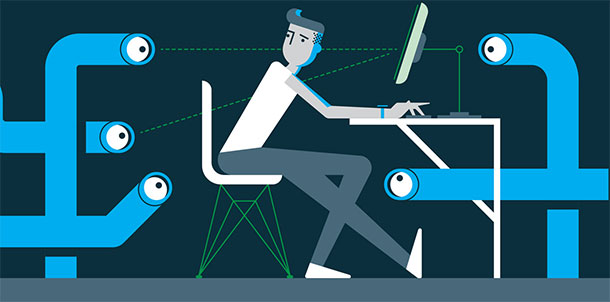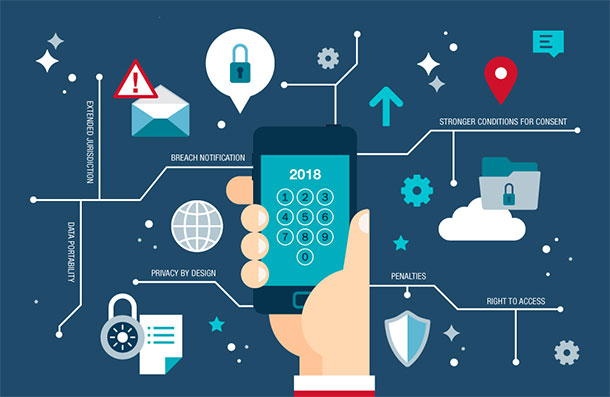7 ways your phone is violating your privacy
Did you know that there are different types of apps, permissions, and settings that can leave your smartphone data exposed? Smartphones are not known for being really secure when it comes to data. Here are some ways your phone is violating your privacy without you even knowing it, and many times you can do something about it.
Read too: apps to find out WiFi passwords on Android 7
1. App permissions
It may seem obvious, but this is one of the most common ways your phone is violating your privacy. Every time we download apps and install them they open a list of permissions needed for them to work. Many users don’t really care about this and end up giving too many permissions to suspicious apps. Typically, the best way to handle this is to check the app’s popularity. Famous apps that have millions of users are less likely to be trying to trick you.
On the other hand, imagine for example a calculator application. In this case, of course, the app won’t need to access things like your location, photos, or contacts. It’s just a calculator, after all. in this case, the best thing to do is to not enable the permissions and simply uninstall the app, looking for a better option in the store. See how to edit the permission of your apps on Android!
2. Browser tracking
Pages accessed using mobile browsers (and even desktop browsers as well) often make use of “Cookies” to store information such as your location, which browser is being used, operating system, and more. Typically this information is used to generate better and more focused advertising profiles. And this is one way your phone is violating your privacy. Accessing what is being searched by Google itself from Chrome, for example, can discover which products are most interesting to you based on recent searches.
There is not much you can do about this, most pages will inform you that they use cookies, and in this case, the best option really is to close them if you do not want your information to be saved. And of course, avoid entering suspicious sites or sites that do not have a secure protocol (https)!
However, it is also worth mentioning that cookies are responsible for keeping you logged into a website (between sessions or even when you go to another page within the same website), as well as for remembering all of your layout options.
3. Public WiFi connection
Every time you access a public Wi-Fi network while walking on the street or even in a mall, it is important to understand that whoever has control over the permissions and accesses through the network is the owner of the network. With that, you really have no way of knowing what might be being shared regarding your device information, location, etc.
One of the few ways to deal with this sort of thing is to try to use a VPN, but usually, these are blocked on public networks. The best thing to do is not connect to the network in this case. However, we know that this will often be necessary.
4. Features on your device
Modern smartphones have several types of sensors integrated into the device’s features. Such as the gyroscope, accelerometer, or even the GPS. Of these, GPS is the most obvious of all. It serves to precisely identify your location while its function is active. It’s important to remember that any app that asks for and is granted access to your location will be able to use your GPS data to track you. This can be a way that your phone is violating your privacy.
Even the accelerometer can be accessed to identify how much time you spend moving or sitting, among other data. The location function on the phone can be turned off, but many applications cannot work without it, such as Google Maps, for example.
5. Cell phone providers
Your own provider may have access to information about your location and more data depending on how you use their services. These can be collected from your phone data usage or even considering which network you are connected to. But there’s no denying that as long as your data and chip usage are active, information is being sent to providers.
This is the hardest way to deal with how your phone is violating your privacy. But don’t worry so much, phone companies usually don’t use this type of information for anything relevant.
6. Secret recordings of your phone screen
Have you ever thought that some apps might secretly record what is happening on your smartphone screen even while in the background? This is a common concern for users who don’t want their information leaked. Think about the amount of data that is displayed on your phone: private conversations, browser searches, videos watched, photos taken and sent, among other things.
There’s nothing you can do about it, it’s actually very difficult to find out that something like this is happening. The best we can do is prevent ourselves by not installing apps or accessing suspicious websites.
7. Photo location
When we take a photo, the devices save the current location with the photos based on the GPS data from where it was taken. This can be useful for us, but remember that any application with access to the photo gallery can also obtain this data. This setting is on by default and is one of the ways your phone is violating your privacy without you even knowing it. However, this option can be easily disabled on your Android and iPhone device, just follow these steps.
Android: Access the camera app. Then open the menu by clicking on the button with 3 dots. Go to settings and disable the Save location option.
iOS: On iOS, just access the device Settings. Go to Privacy and then Location Services. Then select the camera and check to never record your location.
Also, find on AppTuts:
- Best backup apps for Android
- Best augmented reality apps for Android and iPhone
- Instagram: tips to appear on Explore
What do you think of these ways your phone is violating your privacy?
Did you know that there are so many ways your information is being accessed without you knowing? Most of the time there’s not much you can do about it. Send this article to your friends who share the same concerns!








